7 Reasons Your Car Starts Then Immediately Dies
You turn the key expecting a smooth start, but instead your vehicle immediately dies. This perplexing issue could stem from various causes, leaving you scratching your head.
Though frustrating, immediate stalling after your vehicle turns over and starts signals several potential problems. Read on to learn what causes a car that starts to suddenly turn off.

Related: What Can Cause a Car to Shut Off While Driving?
Causes of a Car That Starts But Won’t Stay Running
A vehicle can stall directly following start-up, for a number of reasons. Understanding the root cause of such an issue is priority number one when attempting to get your vehicle back on the road in the most timely manner possible.
The following are several of the most common reasons that your vehicle will not stay running.
See Also: Reasons Your Car Clicks But Won’t Start
#1 – Anti-Theft System Issues
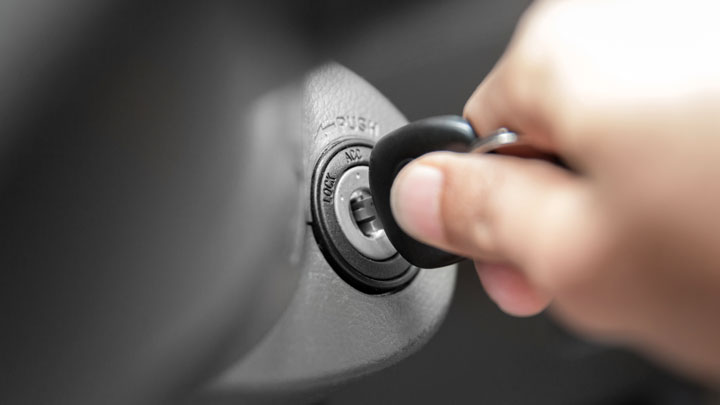
Many of today’s vehicles now come standard with anti-theft systems, which disable one or more of an engine’s vital systems in order to deter would-be thieves. However, an issue with this system, such as a key-chip or transponder fault, can cause a vehicle to be disabled in much the same way.
Issues with a vehicle’s anti-theft system often manifest as stalling within moments of start-up. This occurs when a vehicle’s anti-theft system inhibits power delivery to the fuel pump.
As a result, a vehicle typically stutters and dies within minutes. In many cases, a key icon is displayed on a vehicle’s instrument cluster, when an anti-theft issue occurs.
See Also: How to Test Your Ignition Switch Steering Lock System
#2 – Significant Leak In Vacuum System
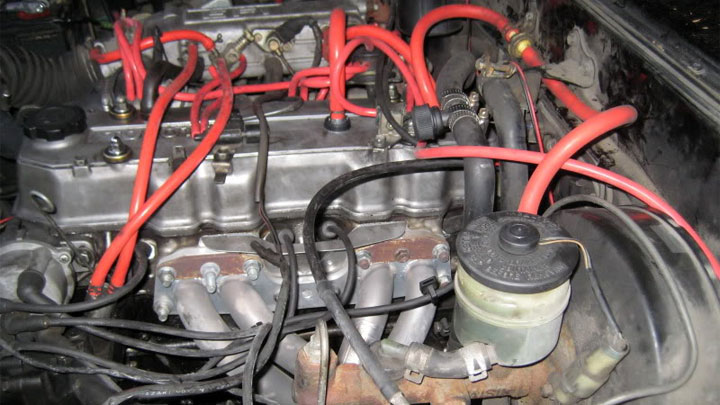
When in operation, a natural vacuum, or negative pressure, is created within an engine’s intake manifold. This vacuum is produced as an engine’s cylinders cycle through their intake stroke, thereby pulling air into each individual combustion chamber.
The actual amount of air allowed into the engine’s intake manifold is metered through the engine’s throttle body.
However, a leak within a vehicle’s intake tract, known as a vacuum leak, can allow unmetered air into the engine. This, in turn, creates a lean condition, in which insufficient fuel is dosed to offset the increase in intake air volume. In severe cases, a vacuum leak of this type can lead to stalling.
#3 – Mass Air Flow Sensor Issues
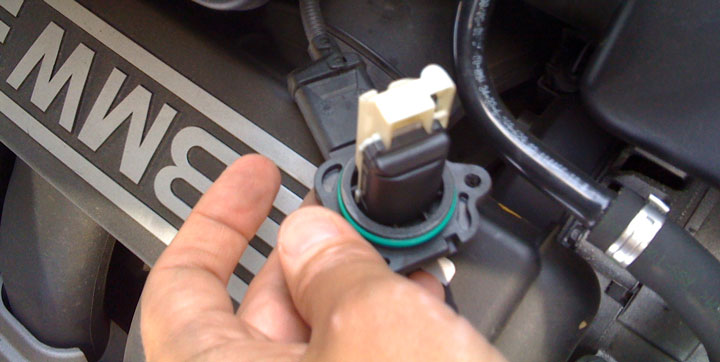
A vehicle’s mass air flow (MAF) sensor detects the rate at which air enters an engine’s intake. These figures are extremely important, as they are used to calculate an engine’s fuel trims.
This is a key principle in determining the correct air-to-fuel ratio for efficient operation, placing substantial value upon viable mass air flow sensor operation.
Nonetheless, mass air flow sensors do occasionally fail, thereby providing a vehicle’s ECM with incorrect or irrational data. A mass air flow sensor can also become dirty, causing much the same issue.
When either of these two scenarios plays out, an engine’s air/fuel ratio is skewed, often leading to engine stalling.
#4 – Faulty Idle Air Control Valve
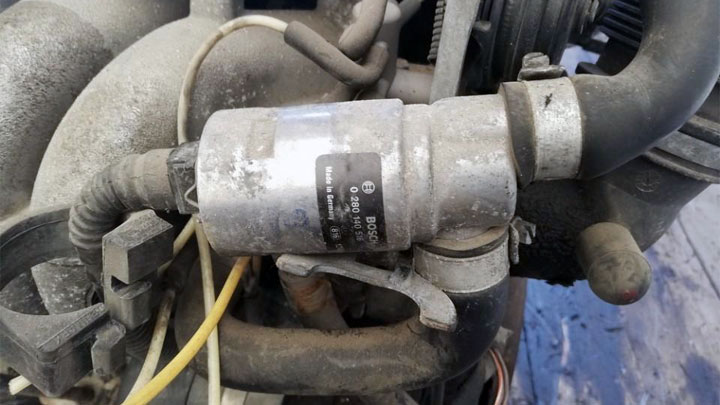
At idle, an engine’s idle air control valve is tasked with regulating intake air flow, as an engine’s throttle plate remains closed. However, an issue with this valve can cause a number of issues, including shakes and misses at idle. In severe cases, a failed idle air control valve can even cause an engine to stall, all together.
It is worth mentioning, the air idle control valve-induced stalling typically occurs as an engine’s A/C compressor is engaged, or other accessories are activated. This is due to the fact that the idle air control valve also regulates RPM changes that occur at idle.
#5 – Inoperable EGR Valve
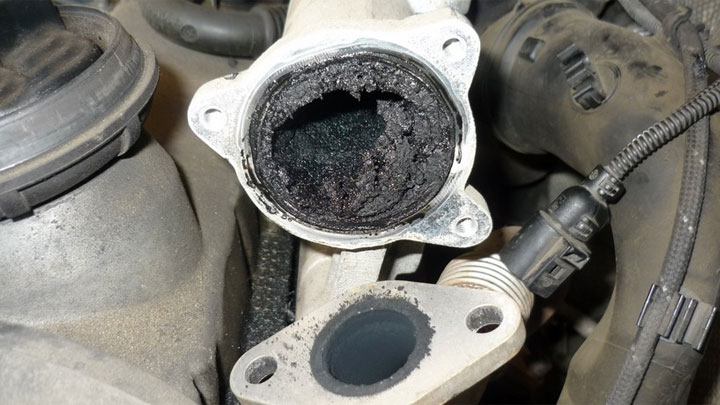
Today, all vehicles are designed to satisfy emissions policies set forth by the federal government. This is accomplished through the use of special equipment, engineered to slash noxious exhaust discharge.
One such piece of equipment is the EGR valve, which recirculates combustion byproduct through an engine’s intake manifold. These fumes are again introduced into an engine’s cylinders for combustion.
Unfortunately, EGR valves are prone to failure, thereby skewing the manner in which these exhaust gases are reintroduced. Rather than only allowing exhaust gases to recirculate when an engine is warm, a faulty EGR valve will often do so when an engine is cool.
An EGR valve can also become stuck due to carbon fouling, causing the same issue. When this takes place, engine stalling often comes as a result.
#6 – Ignition System Problems
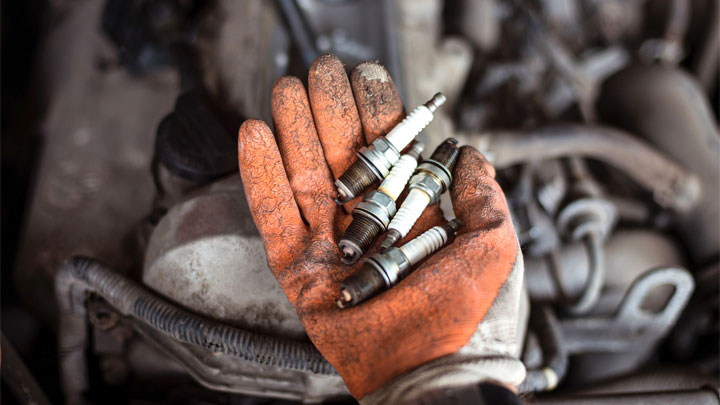
A vehicle’s ignition system must be in proper working order if your engine is expected to run with any level of efficiency.
In certain cases, faulty ignition system components will prevent a vehicle from starting or will cause a vehicle to stall at any given time, including in the moments following start-up. This is due to the fact that the ignition system is responsible for delivering spark for combustion.
An ignition-related stalling condition can be caused by issues with a vehicle’s battery, battery terminals, ignition coil, ignition switch, spark plugs, or plug wires.
Additionally, the presence of multiple faulty spark plugs or coil-packs, within a single ignition system can also lead to stalling, or at the very least, creating an extremely rough idle.
See Also: P1682 Code (Ignition Circuit Problem)
#7 – Fuel System Problems
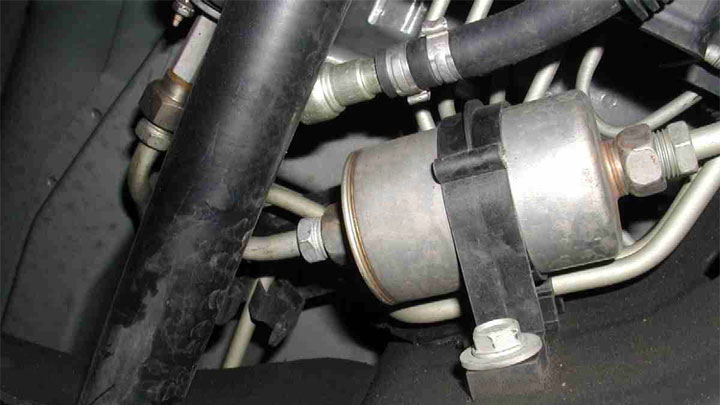
The health of an engine’s fuel system is absolutely key to efficient operation. Without a properly functioning fuel system, many different issues can arise, including those that ultimately lead to stalling.
This stems from the fact that proper fuel delivery is an essential ingredient of combustion. Reduced fuel delivery leads to reduced performance, without exception.
There are several individual fuel system issues, which might induce stalling. Some of the most common of these conditions include a weak or failing fuel pump, bad fuel pump relay, faulty injectors, and failed regulator.
Additionally, older vehicles are prone to similar issues when experiencing carburetor problems. In any event, issues of this nature must be confirmed with the use of a fuel pressure gauge.
Why Won’t My Car Stay Running Unless I Give It Gas?
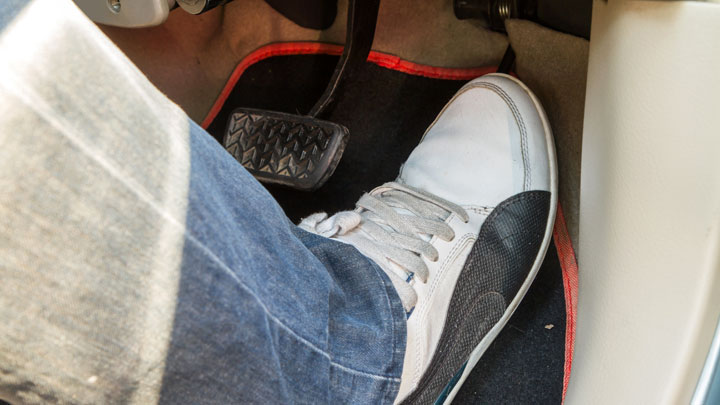
One common complaint among motorists is that their vehicle will not stay running unless they depress the gas pedal.
In all actuality, this can be caused by a number of issues, all of which differ slightly in severity. Nonetheless, one must uncover the exact cause of their vehicle’s problem, so that necessary repairs may be made.
One common cause of this condition is a faulty idle air control valve. Since this valve meters airflow through an engine’s intake at idle, even a minor problem can induce a stall, when no throttle is called for. However, depressing a vehicle’s gas pedal actuates the engine’s throttle plate, thereby bypassing the air idle control valve entirely.
Another potential reason for issues of this nature relates to restricted fuel flow. When an engine is starved for fuel, due to a clogged fuel filter, or any other undesirable condition, continual throttle application may be necessitated. This tends to be especially true of carbureted applications.
In certain instances, a severe vacuum leak can also cause engine stalling that is avoided through throttle application. Depressing your vehicle’s gas pedal causes fluctuations in the engine’s air-to-fuel ratio, thereby overcoming an imminent stall as a result.
- Car Temperature Gauge Stopped Working? (Here’s Why) - Apr 15, 2024
- Ignition Coil vs Coil Pack (What’s the Difference?) - Apr 8, 2024
- Windshield Wipers Won’t Turn Off? (Causes and What to Do) - Apr 5, 2024

I found on my 82 Corvette the map sensor was bad. Take the hose off see if it was any difference. I haven’t replaced it yet so I’m pretty sure that’s what it was and try it
Have replaced the crankshaft, no codes are given but the car still turns off. Chevrolet Malibu LS 3.5 V6 there’s fuel , battery is fine. Ugh what can it be?
Check the basics before going too much further. Remember a car needs air, fuel, spark, and timing to run correctly. Pay attention to how the car starts, then dies. Does it sputter and slowly die? Does it shut off immediately like you turned the key? These are all clues into the root cause of the issue.
Can you keep the car running if you give it more gas?
Thought it was the battery because it would not start and then it will start. Change the battery now it will start but it will automatically die. It’s not clicking or anything it turns over just doesn’t fire and if it does fire it dies right away Any suggestions.
You’ll have to do a bit of diagnostic work to narrow down the problem. First scan for codes, see if there are any sensors that are not reading properly (such as the crankshaft position sensor, camshaft position sensor, MAF sensor, etc). Remember a car needs air, fuel, spark, and timing to run correctly.